Archives: Documents
-
ENERGIA Phase 7 Strategy 2022 – 2026
As ENERGIA enters its seventh phase (2022-2026), this document presents ENERGIA’s Strategy for 2022–2026. This document, ENERGIA’s 2022-26 strategy, elaborates our vision for Phase 7 and serves as the fundamental guide for designing and implementing our strategies can activities.
-
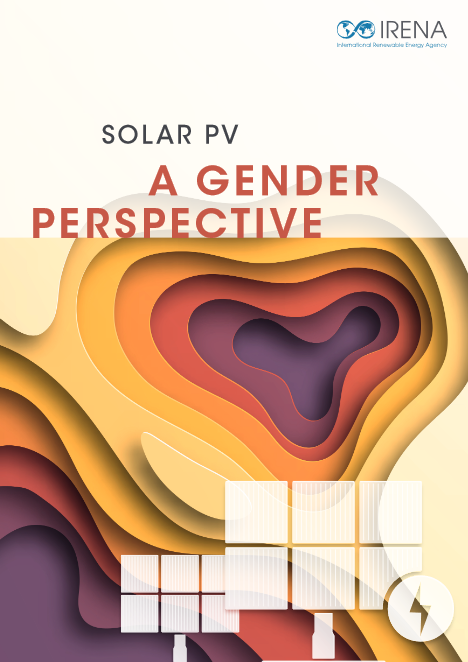
Solar PV: A Gender Perspective
Gender equality is not only an intrinsic human right and a core development objective, but also an instrument for development. It increases productivity and improves the welfare of families and children while having solid and positive impacts on GDP per capita. Economic empowerment is a particularly effective means for women to gain more control over…
-
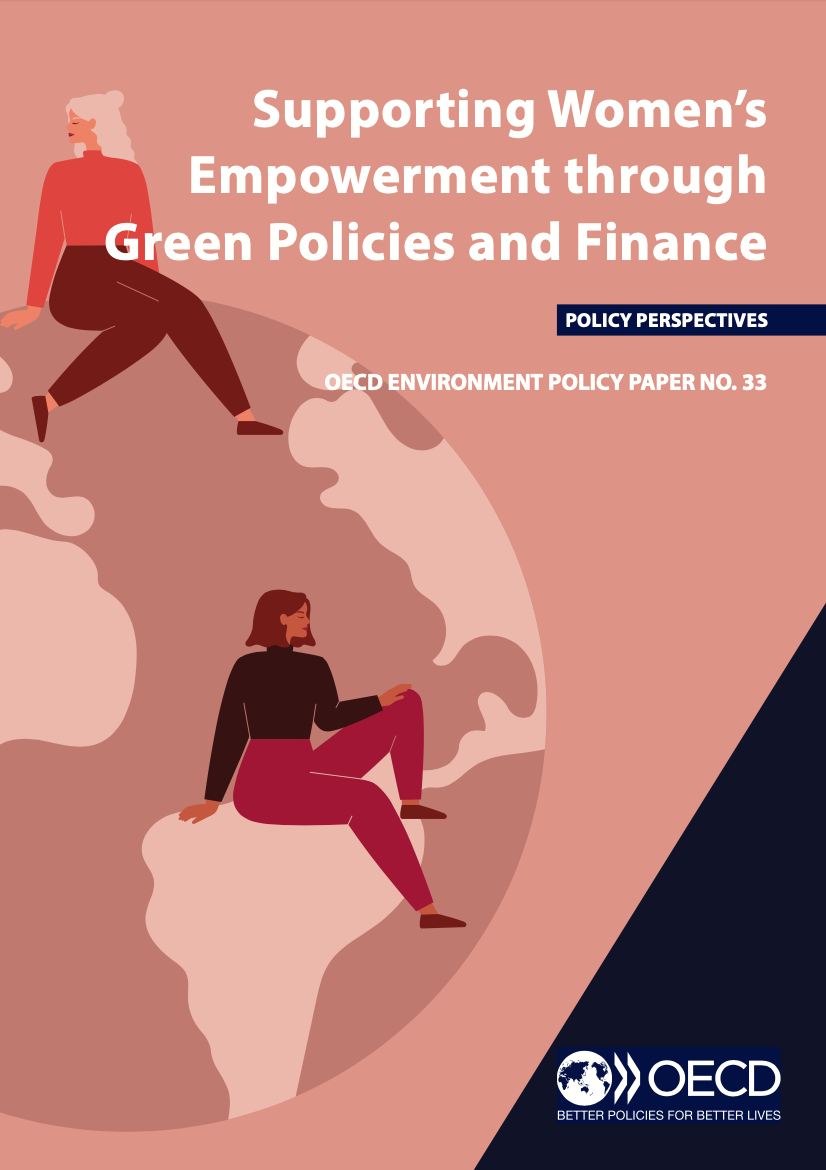
Supporting women’s empowerment through green policies and finance
It is increasingly recognised that women and girls tend to be disproportionately impacted by climate change and other environmental challenges, especially in developing countries. Yet, little research or policy action has focused on how gender equality and environmental goals can be mutually reinforcing. This policy paper examines linkages and synergies between these two policy agendas…
-
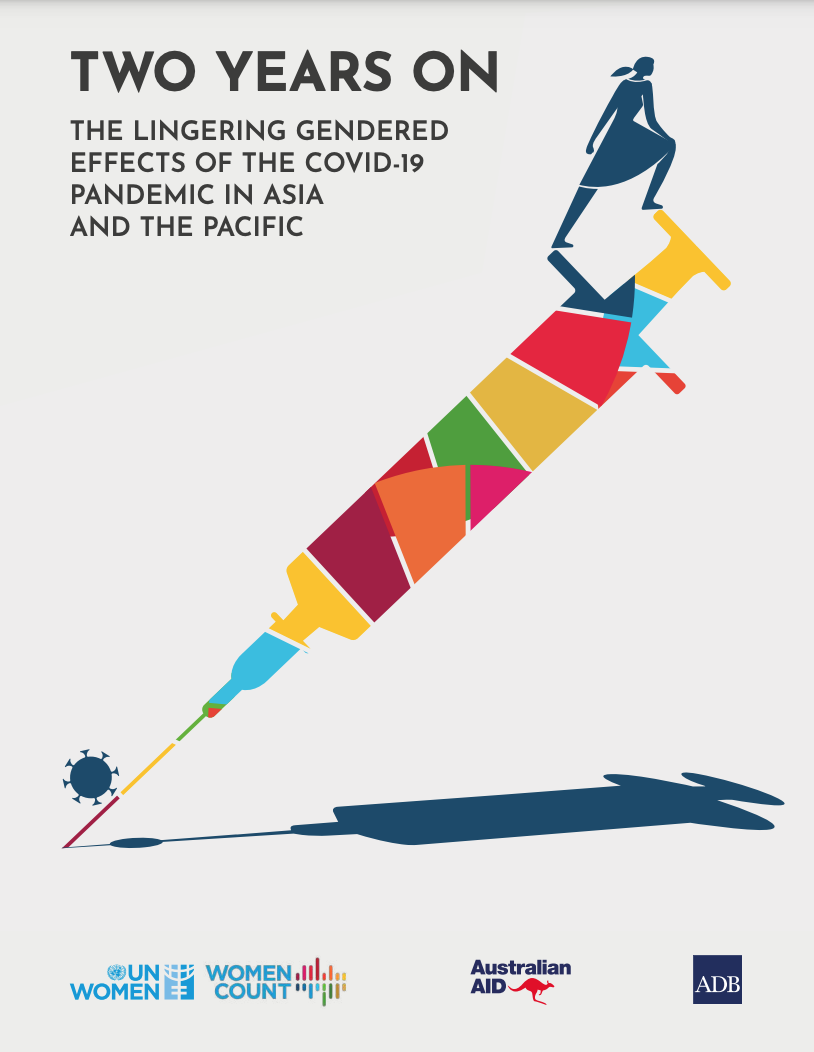
Two years on: The lingering gendered consequences of COVID-19 in Asia and the Pacific
Two years into the COVID-19 pandemic, the lingering effects of the crisis are multidimensional, even in countries where the virus did not spread widely. For women and girls, existing gender inequalities and socioeconomic barriers have only been exacerbated. To assess the gendered consequences of the pandemic, UN Women and the Asian Development Bank worked with…
-

Tracking increase in women’s employment in the renewable energy sector under NDC targets
In 2019-2020, the Global Green Growth Institute (GGGI) completed its Employment Assessment ofRenewable Energy Targets under the Nationally Determined Contributions (NEAR-NDC) Project. The project aimed to generate an evidence base for the link between Renewable Energy (RE) targets in NDCs and its required investments with employment generation to support and strengthen GGGI Member countries’ RE…
-
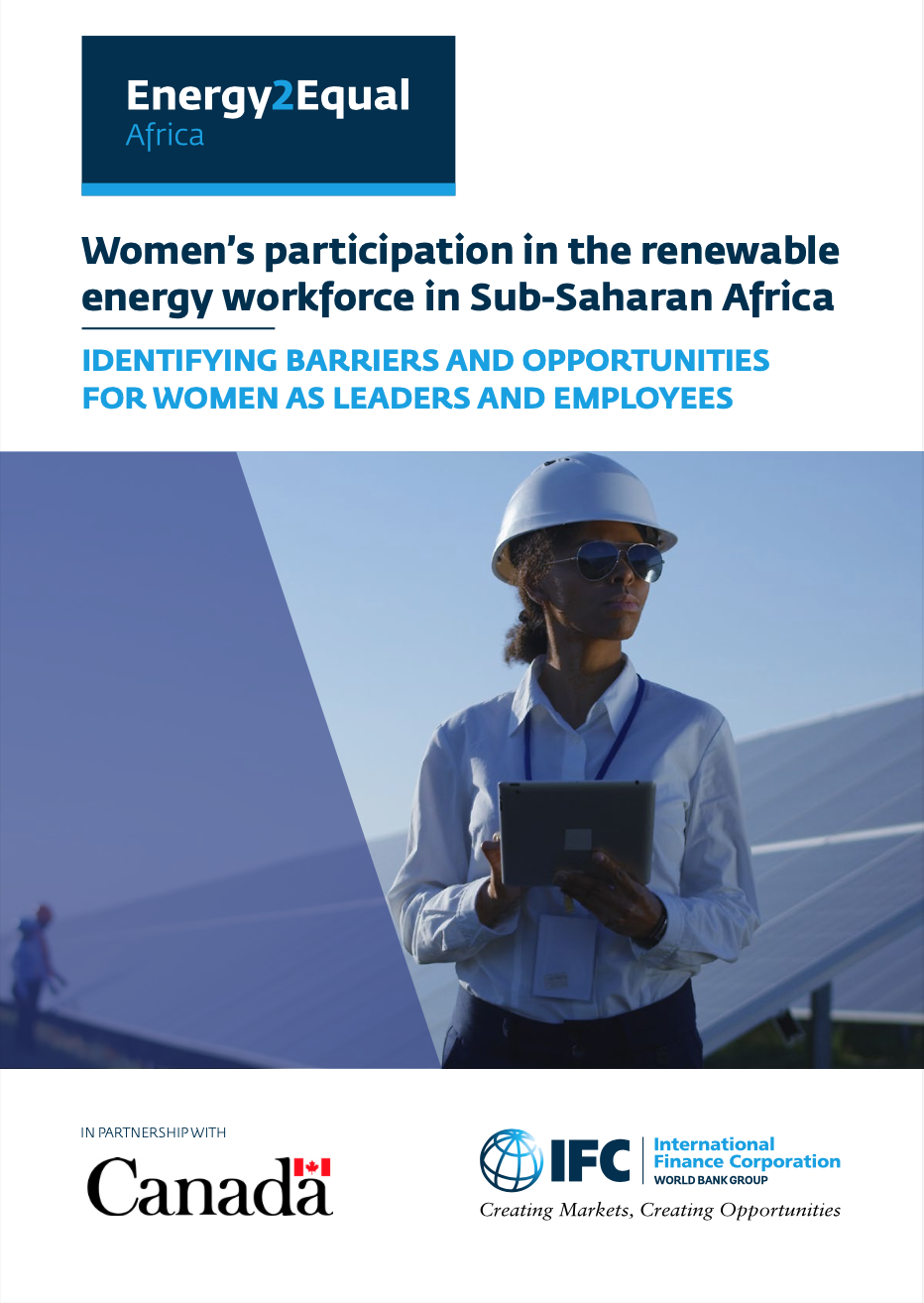
Women’s participation in the renewable energy workforce in Sub-Saharan Africa
This study found that women comprise about a quarter of company board members, executives, and managers in the RE sector. While women comprised about one third of RE sector workers, they were largely concentrated in corporate support functions. Only 13 percent of women had higher-paying science, technology, engineering, and mathematics (STEM)-related jobs, and 16 percent…
-
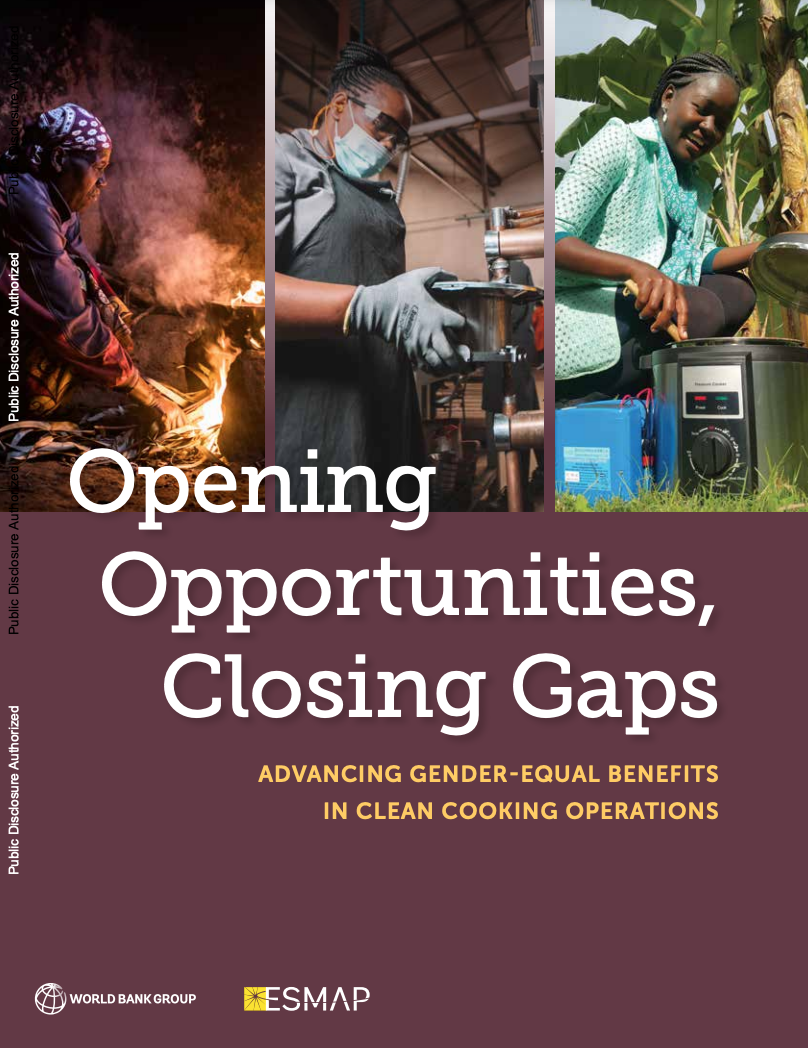
Opening Opportunities, Closing Gaps
At the current rate of ambition, the world will fall short of achieving sustainable development goal 7 (SDG 7) by 2030. Slow progress toward access to clean cooking solutions has significant negative impacts on women (for example, harm to health from disproportionate exposure to household air pollution (HAP); safety hazards and risks to well-being; and…
-
Energy and Gender in Asia: A regional review
The ongoing global energy transition towards a low carbon and sustainable future has the potential to bring far-reaching and systematic changes to our societies. This transition offers several opportunities for greater social justice and gender equality and is likely to create pathways to improve women’s quality of life. While making inroads into entrenched social structures,…
-
Women’s work is never done: Lifting the gendered burden of firewood collection and household energy use in Kenya
In rural Kenya, firewood is used for cooking and heating by 9 out of every 10 households due to its affordability, availability and convenience. This study was carried out using social and natural science methods to understand women’s energy burdens and the reasons for the persistent use of firewood. Firewood remains the main source of…
-

Energy Access and Gender in Ghana: Policy Brief
In the wider West African region, Ghana is often seen as an energy success story with over 80% of the population having access to grid electricity. Yet, 50% of rural areas live without this access while ‘dumsor’ (load shedding) poses an ongoing challenge for those connected. In terms of gender equity, national energy policy recognises…
-
Energy Access and Gender in India: Policy Brief
The connection between equity in energy access and developmental aspects like poverty reduction, health and wellbeing is today well understood. Responding to this, energy access policies and programmes in India have tried to address gender equity within energy access, but much of this effort has failed to create a transformational impact. Until 2018, 680 million…
-
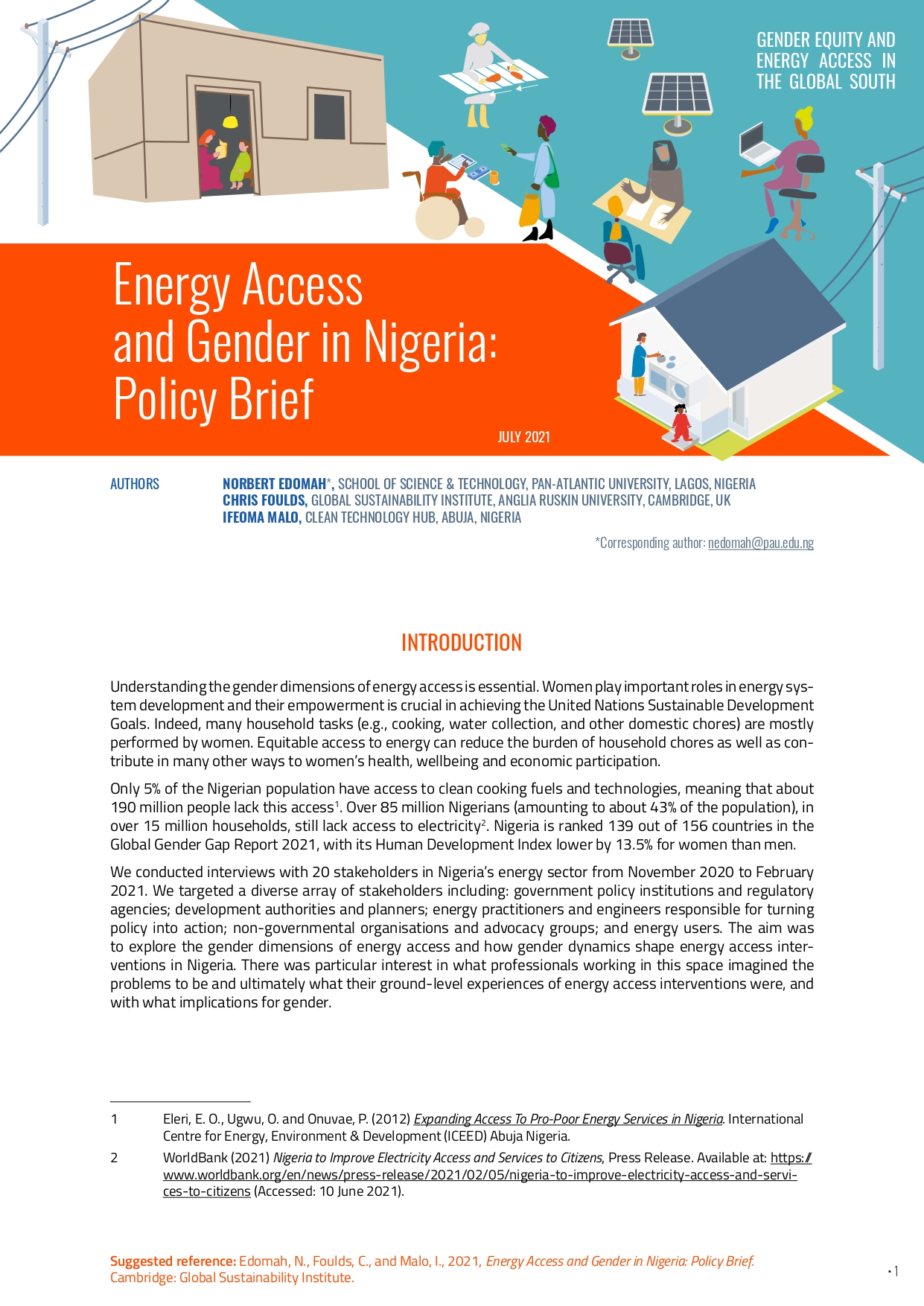
Energy Access and Gender in Nigeria: Policy Brief
Understanding the gender dimensions of energy access is essential. Women play important roles in energy system development and their empowerment is crucial in achieving the United Nations Sustainable Development Goals. Indeed, many household tasks (e.g., cooking, water collection, and other domestic chores) are mostly performed by women. Equitable access to energy can reduce the burden…

